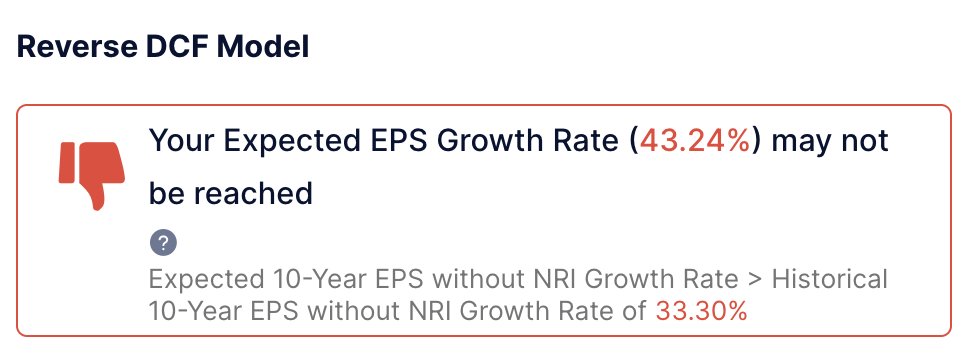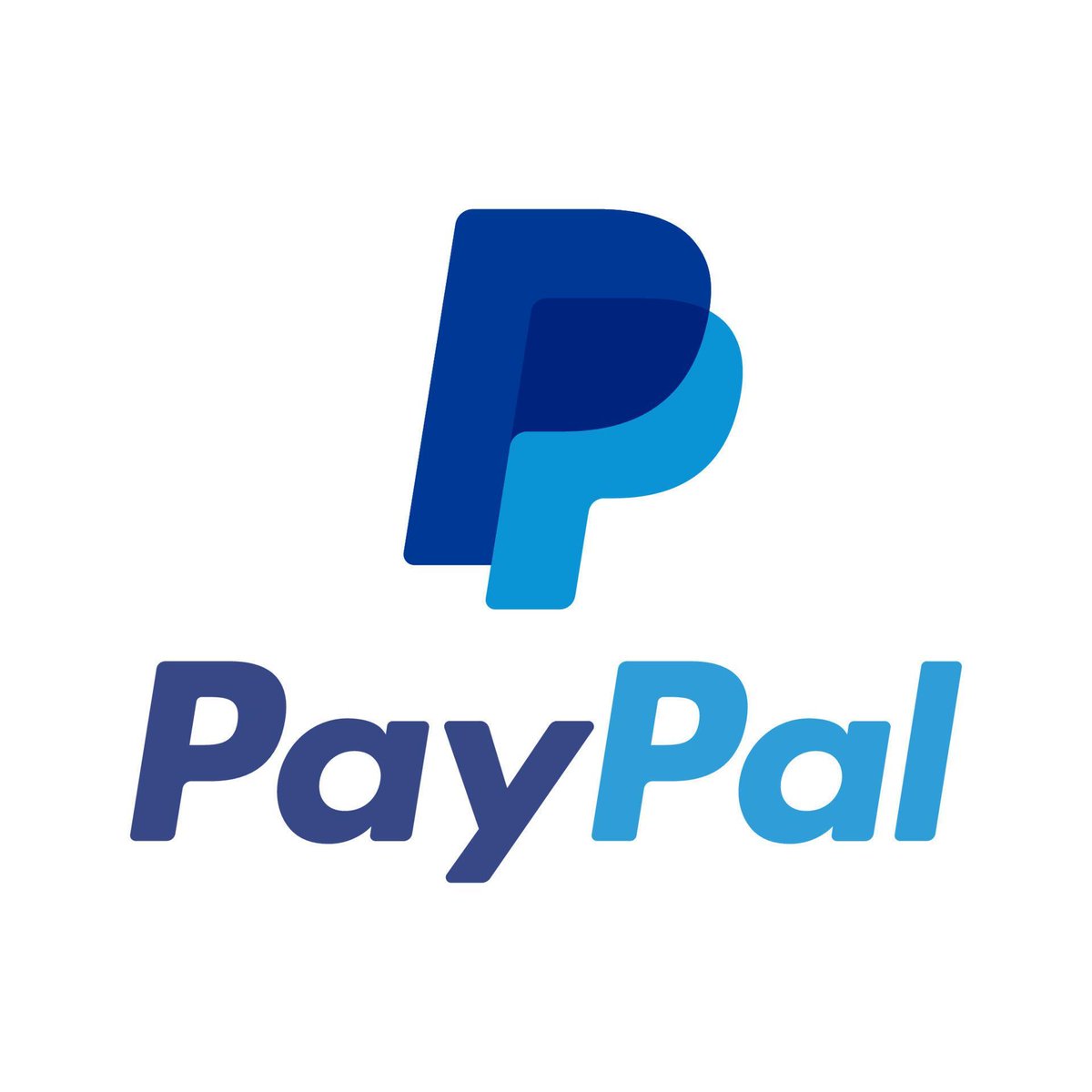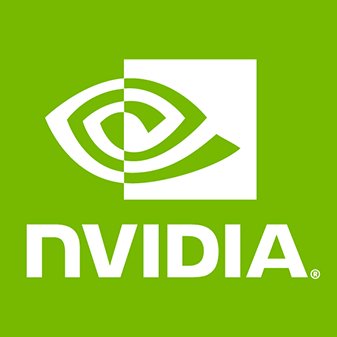I just published my new newsletter issue 👇
$NVDA Nvidia Stock Analysis: Is it a Good Investment Opportunity?
I'll be summarizing it in this thread:
(Please retweet 🙏)
$NVDA Nvidia Stock Analysis: Is it a Good Investment Opportunity?
I'll be summarizing it in this thread:
(Please retweet 🙏)

Business Model:
Nvidia operates in 2 segments 👇
• Graphics segment includes sales of GPUs & other related products.
• Compute & Networking segment includes products related to data centers, artificial intelligence & high-performance computing.
Nvidia operates in 2 segments 👇
• Graphics segment includes sales of GPUs & other related products.
• Compute & Networking segment includes products related to data centers, artificial intelligence & high-performance computing.

Nvidia specialize in markets where their computing platforms can provide tremendous acceleration for applications.
Primary markets that $NVDA serves:
• Data Center
• Gaming
• Professional Visualization
• Automotive
Primary markets that $NVDA serves:
• Data Center
• Gaming
• Professional Visualization
• Automotive
Track Record:
Nvidia massively outperformed the market in the last 5 and 10 years.
Here's the 5 year total return of $NVDA vs $QQQ:
Nvidia massively outperformed the market in the last 5 and 10 years.
Here's the 5 year total return of $NVDA vs $QQQ:

Balance Sheet:
Total assets is 2x of total liabilities.
It indicates that the company is in a strong financial position and is financially stable.
Total assets is 2x of total liabilities.
It indicates that the company is in a strong financial position and is financially stable.

A lot of Total Current Assets relative to Total Current Liabilities.
Means the company has no liquidity issues in the short-term.
Means the company has no liquidity issues in the short-term.

A good amount of Total Cash and Short Term Investments relative to Total Debt.
Majority of the Total Debt is Long Term Debt (payable beyond 12 months).
In short, the balance sheet of Nvidia is healthy.
Majority of the Total Debt is Long Term Debt (payable beyond 12 months).
In short, the balance sheet of Nvidia is healthy.

Competitive Advantages:
1. Strong brand recognition
NVIDIA is a well-known brand in the gaming industry, and its GPUs are highly regarded by gamers and professionals alike.
1. Strong brand recognition
NVIDIA is a well-known brand in the gaming industry, and its GPUs are highly regarded by gamers and professionals alike.
2. Technological expertise
NVIDIA has a strong track record of innovation, with a focus on developing cutting-edge graphics technologies that deliver superior performance.
NVIDIA has a strong track record of innovation, with a focus on developing cutting-edge graphics technologies that deliver superior performance.
3. Diversified revenue streams
NVIDIA has a diversified revenue base, with its products and services spanning across gaming, data center, professional visualization, and automotive markets.
NVIDIA has a diversified revenue base, with its products and services spanning across gaming, data center, professional visualization, and automotive markets.
4. Strong financial position
NVIDIA has a strong balance sheet, with significant cash reserves and low debt levels, which provides the company with the financial flexibility to pursue growth opportunities.
NVIDIA has a strong balance sheet, with significant cash reserves and low debt levels, which provides the company with the financial flexibility to pursue growth opportunities.
Valuation:
$NVDA Nvidia Price to Earnings (P/E) is at the highest using the data for the last 10 years.
$NVDA Nvidia Price to Earnings (P/E) is at the highest using the data for the last 10 years.

Price to Free Cash Flow (P/FCF) of $NVDA compared to some of its competitors ( $AMD $INTC $AAPL ).
In summary, the current valuation of Nvidia is very high compared to its 10-year historical valuation and compared to its competitors based on P/E and P/FCF.
In summary, the current valuation of Nvidia is very high compared to its 10-year historical valuation and compared to its competitors based on P/E and P/FCF.

$NVDA Reverse DCF:
Using 10% Discount Rate and 2% Terminal Stage Growth Rate.
On the current share price, the market is expecting a 43.24% EPS growth rate.
Using 10% Discount Rate and 2% Terminal Stage Growth Rate.
On the current share price, the market is expecting a 43.24% EPS growth rate.

Now let's use Free Cash Flow...
On the current share price, the market is expecting a 44.40% Free Cash Flow growth rate for $NVDA.
On the current share price, the market is expecting a 44.40% Free Cash Flow growth rate for $NVDA.

Nvidia is poised to benefit from major growth trends in the technology industry.
Forecasts indicate that the global GPU market will see a compound annual growth rate (CAGR) of 21.2% until 2029.
Forecasts indicate that the global GPU market will see a compound annual growth rate (CAGR) of 21.2% until 2029.
Similarly, the global deep learning market is projected to experience a CAGR of 33.5% through 2030.
And the global AI market is predicted to have a CAGR of 38.1% until 2030.
These trends suggest a bright future for Nvidia as it continues to innovate & expand its offerings.
And the global AI market is predicted to have a CAGR of 38.1% until 2030.
These trends suggest a bright future for Nvidia as it continues to innovate & expand its offerings.
Conclusion:
Nvidia is a fantastic business with plenty of growth potential. My concern is the valuation since it’s priced at a very high P/E and P/FCF multiples. The expected EPS and FCF growth rate based on the reverse DCF calculation is very difficult to be met.
Nvidia is a fantastic business with plenty of growth potential. My concern is the valuation since it’s priced at a very high P/E and P/FCF multiples. The expected EPS and FCF growth rate based on the reverse DCF calculation is very difficult to be met.
Buying shares of $NVDA at the current valuation is very risky.
There's a significant possibility of multiple contraction (huge downside risk).
Having said that, the stock may continue to climb higher if the market continues to overlook the valuation (which is a big "if").
There's a significant possibility of multiple contraction (huge downside risk).
Having said that, the stock may continue to climb higher if the market continues to overlook the valuation (which is a big "if").
If the goal is to invest with a long-term investment time horizon, with a high probability to make money and with a margin of safety (minimal downside risk), $NVDA is not an ideal option because it is too expensive.
When buying $NVDA today, it's crucial to time the market (be able to exit before the bubble pops) and practice risk management, such as limiting the position size in a portfolio.
You can read the full post here:
thoughtful-investing.beehiiv.com/p/nvda-nvidia-…
Thanks for reading! I hope you found some value.
Consider to share & follow me @FI_investor :)
thoughtful-investing.beehiiv.com/p/nvda-nvidia-…
Thanks for reading! I hope you found some value.
Consider to share & follow me @FI_investor :)
If you are interested to read more stock analysis like this, subscribe to my FREE newsletter:
thoughtful-investing.beehiiv.com/subscribe
thoughtful-investing.beehiiv.com/subscribe
Thanks for reading!
Let me know which stocks should I analyze next.
I would really appreciate it if you will retweet the tweet below 🙏:
Let me know which stocks should I analyze next.
I would really appreciate it if you will retweet the tweet below 🙏:
https://twitter.com/FI_investor/status/1651568752503447552
Tagging some #fintwit people 😄
@stonkmetal @kostofff @Stock_Opine @IFB_podcast @micscofie1d @InvestmentTalkk @InversionFundam @dissectmarkets @capitalemployed @wolfofharcourt @SouthernValue95 @Giuliano_Mana @CCM_Brett @StockMarketNerd @simpleinvest01 @ValueStockGeek @FromValue
@stonkmetal @kostofff @Stock_Opine @IFB_podcast @micscofie1d @InvestmentTalkk @InversionFundam @dissectmarkets @capitalemployed @wolfofharcourt @SouthernValue95 @Giuliano_Mana @CCM_Brett @StockMarketNerd @simpleinvest01 @ValueStockGeek @FromValue
Tagging some @JoinCommonstock people if interested
@arny_trezzi @Beaver_Cap @01Core_Ben @ConsumeOwnTech @BuyingYourTime @dissectmarkets @fatbabyfunds @NathanWorden @Invesquotes @SLT_Research @BrianFeroldi @HedgeVision
@arny_trezzi @Beaver_Cap @01Core_Ben @ConsumeOwnTech @BuyingYourTime @dissectmarkets @fatbabyfunds @NathanWorden @Invesquotes @SLT_Research @BrianFeroldi @HedgeVision
• • •
Missing some Tweet in this thread? You can try to
force a refresh



























